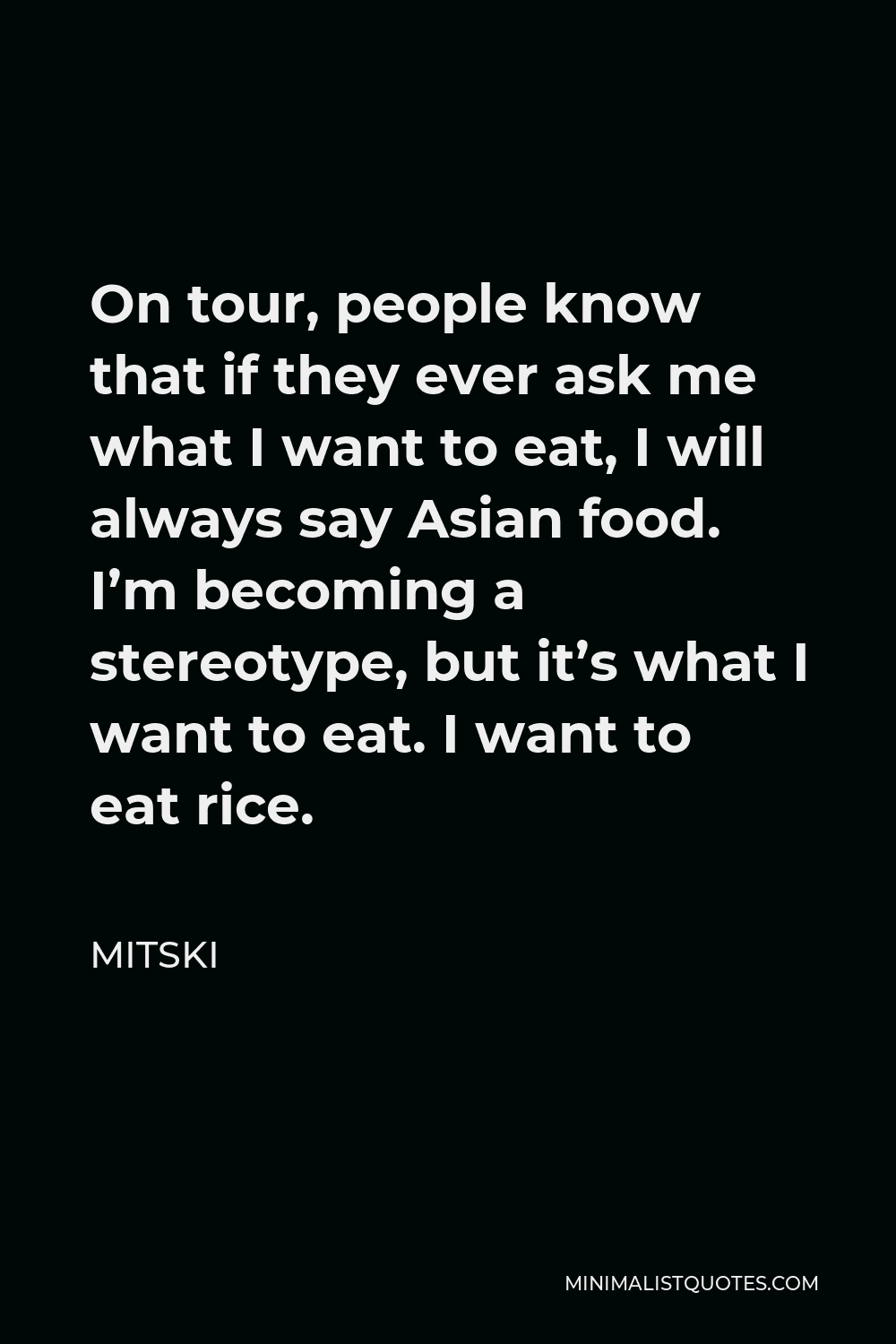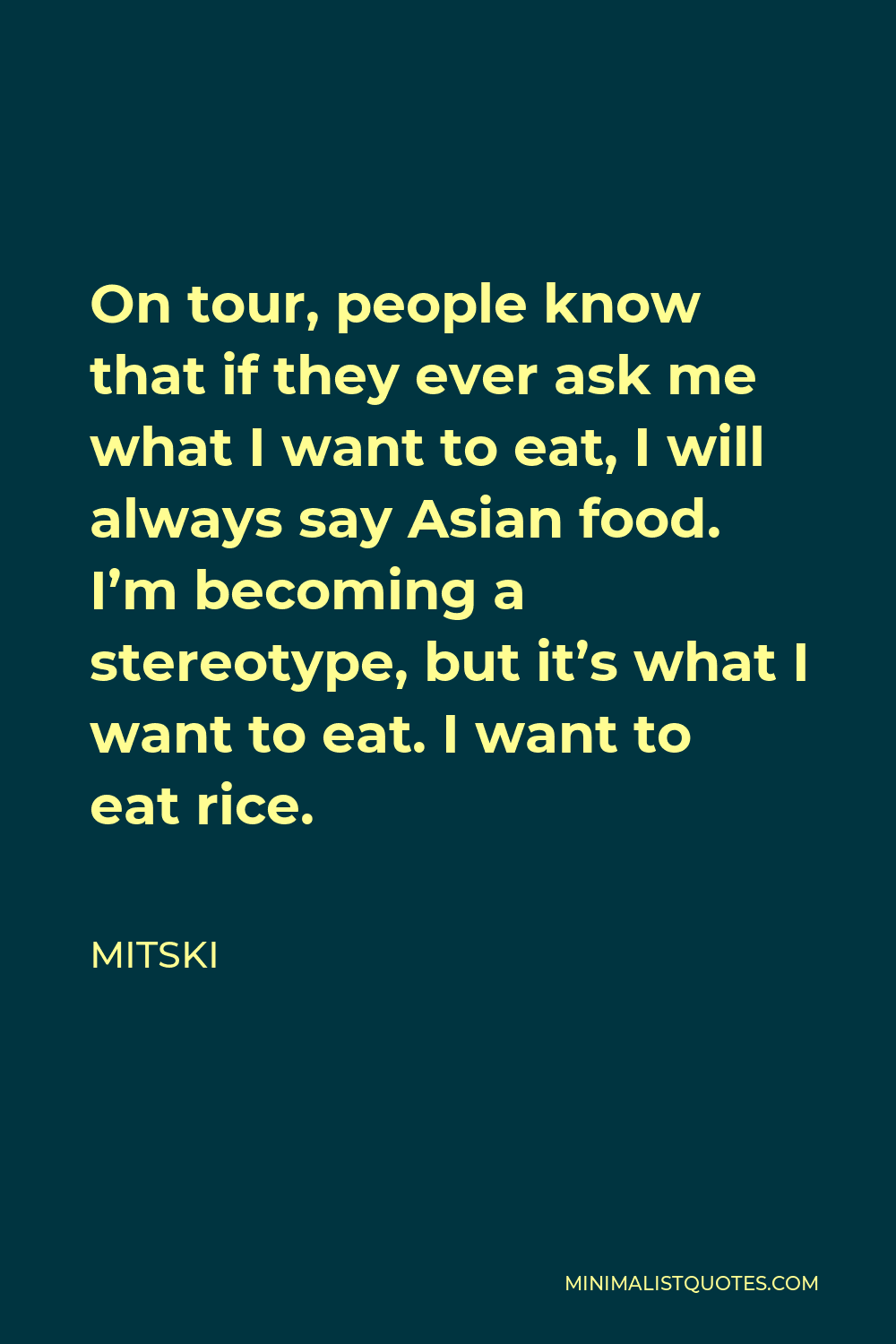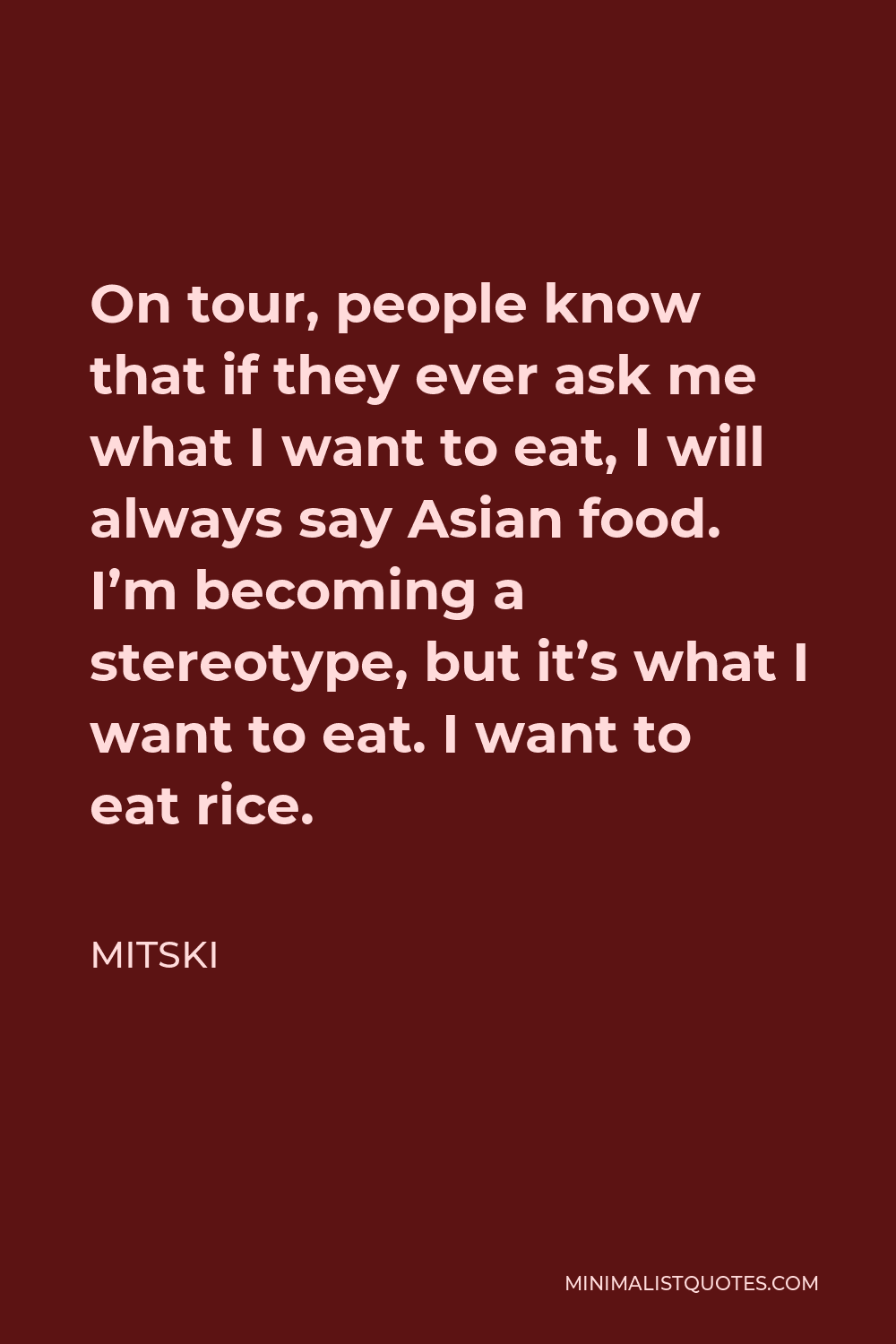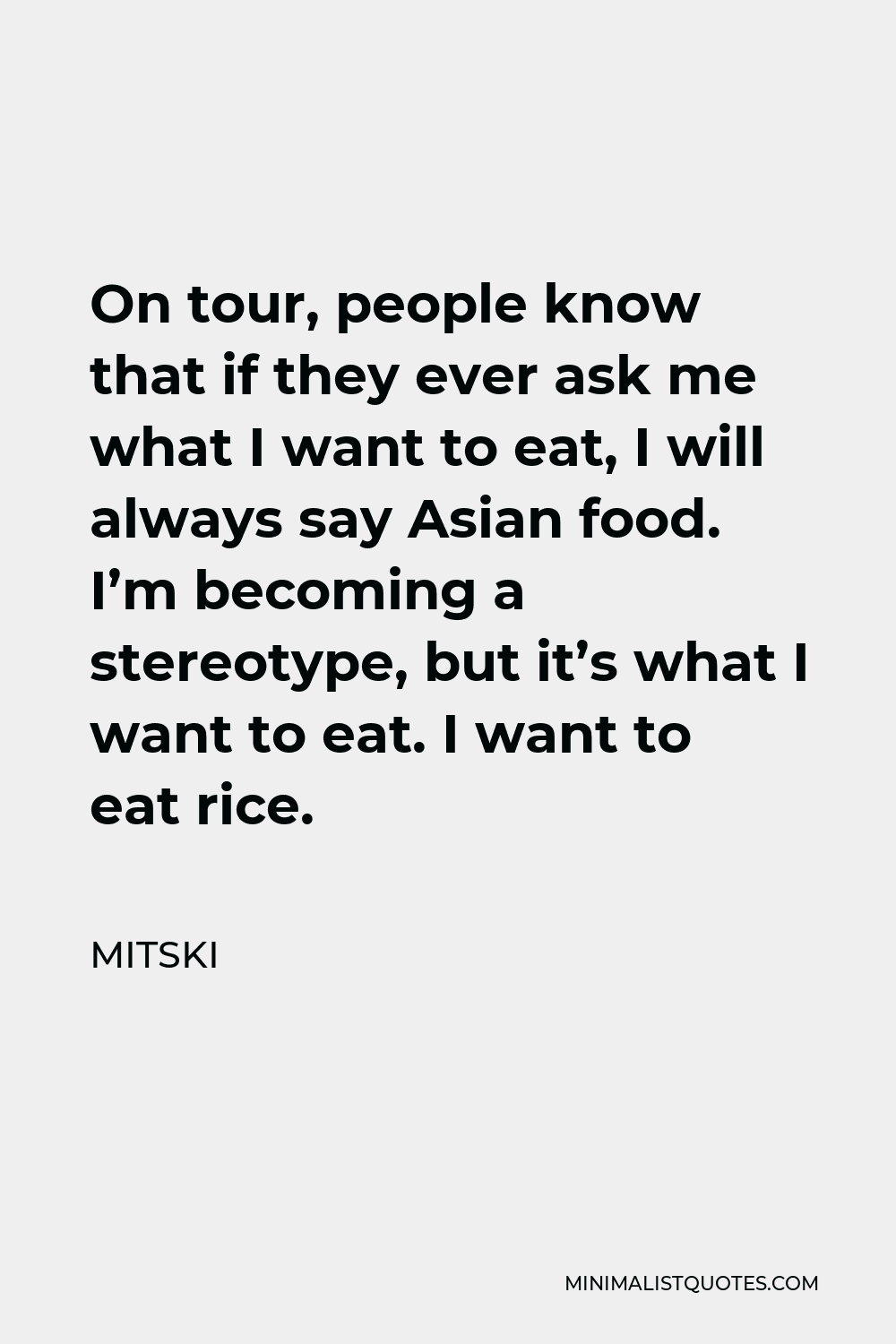I actually love the summer. When I went to Miami on tour, I was actually like, ‘I love this place.’
MITSKIOn tour, people know that if they ever ask me what I want to eat, I will always say Asian food. I’m becoming a stereotype, but it’s what I want to eat. I want to eat rice.
More Mitski Quotes
-





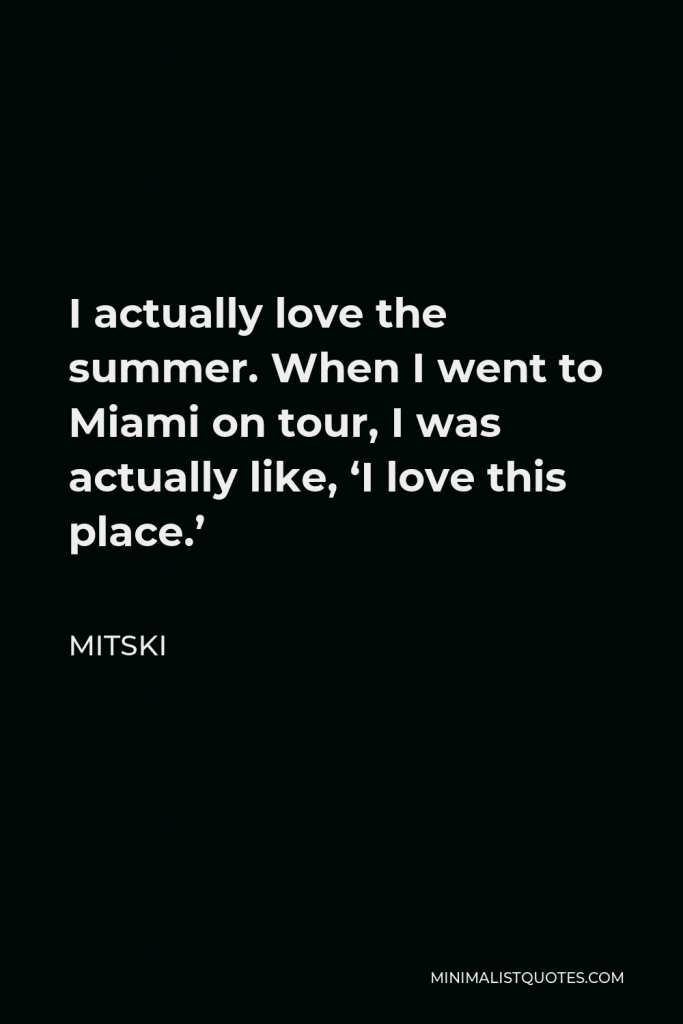

-





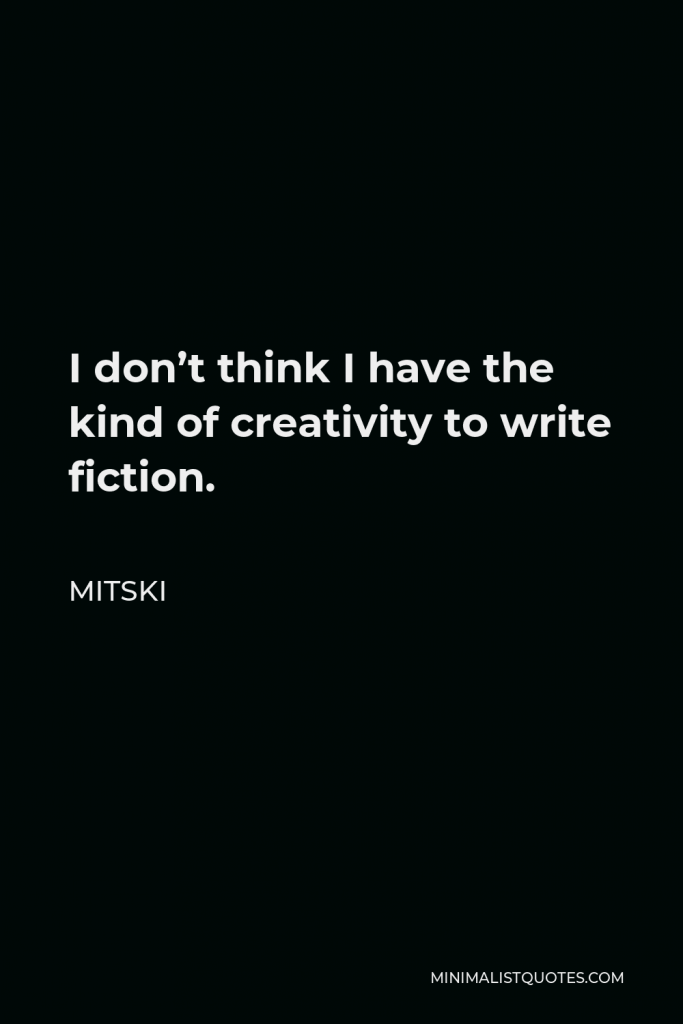

I don’t think I have the kind of creativity to write fiction.
MITSKI -





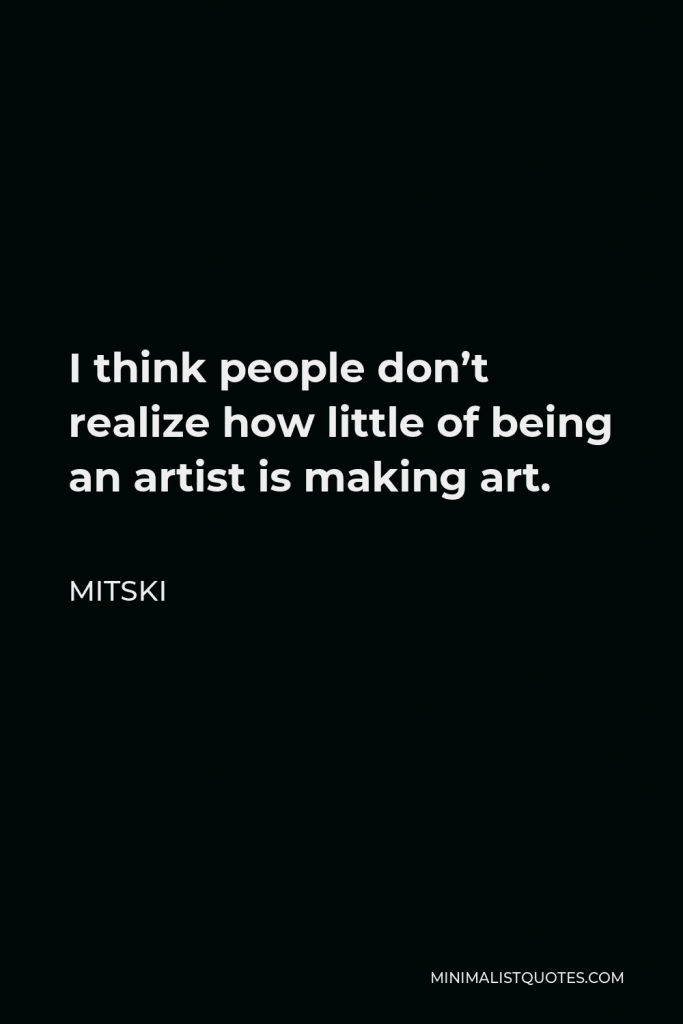

I think people don’t realize how little of being an artist is making art.
MITSKI -





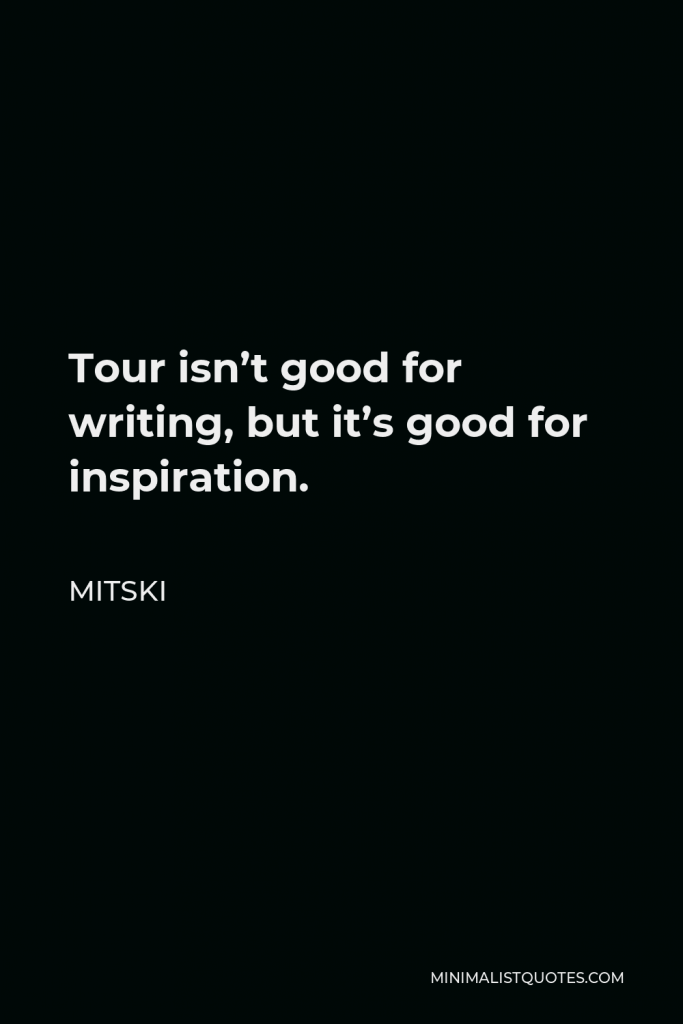

Tour isn’t good for writing, but it’s good for inspiration.
MITSKI -





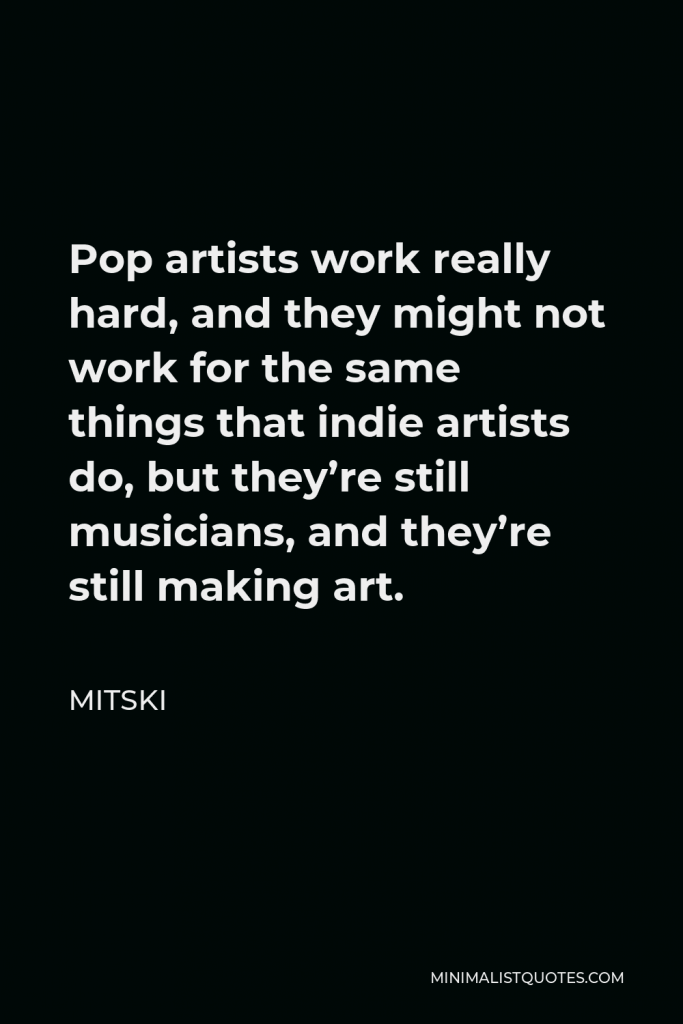

Pop artists work really hard, and they might not work for the same things that indie artists do, but they’re still musicians, and they’re still making art.
MITSKI -





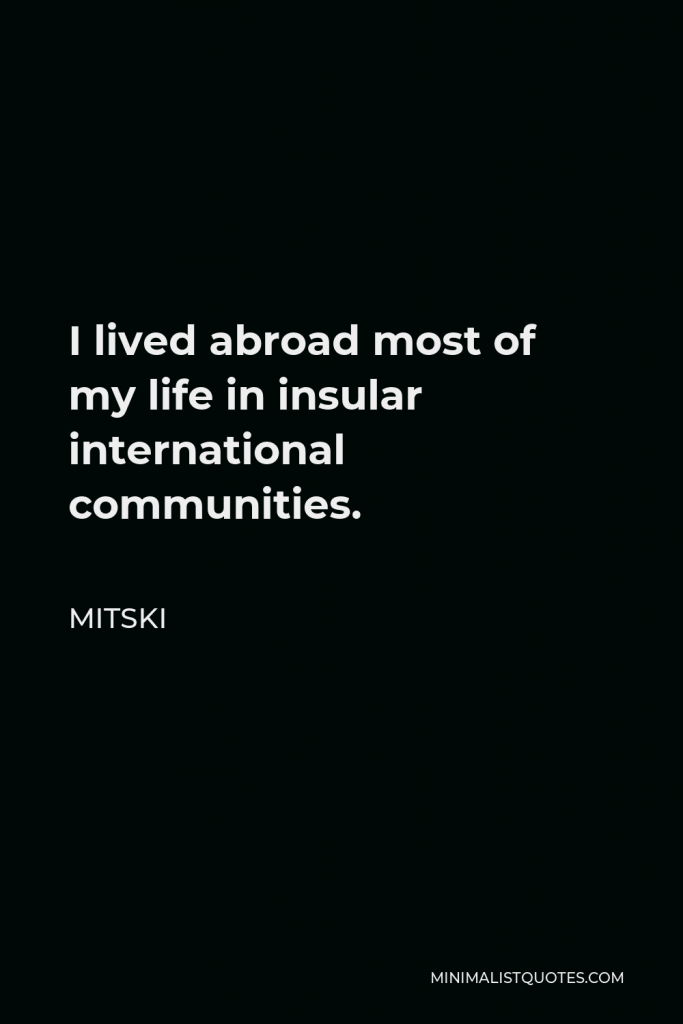

I lived abroad most of my life in insular international communities.
MITSKI -





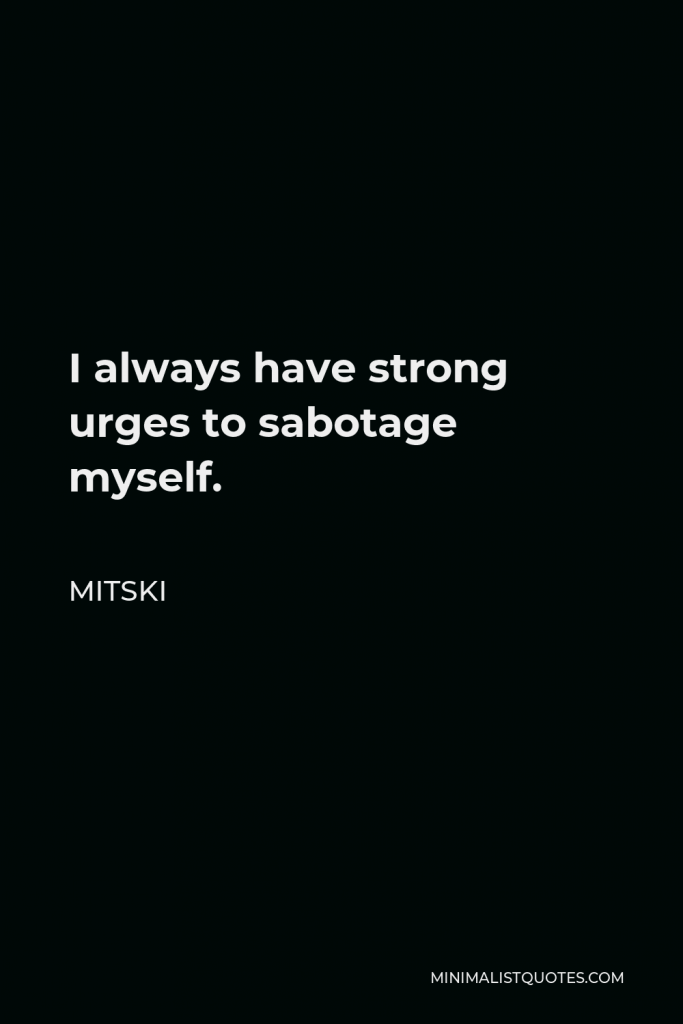

I always have strong urges to sabotage myself.
MITSKI -





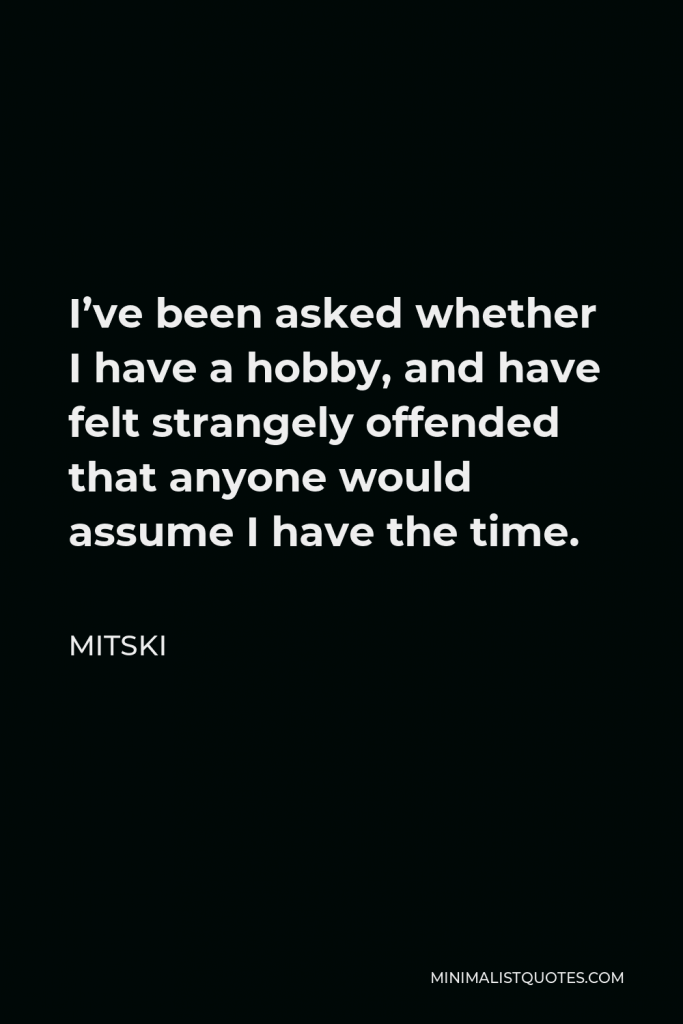

I’ve been asked whether I have a hobby, and have felt strangely offended that anyone would assume I have the time.
MITSKI -





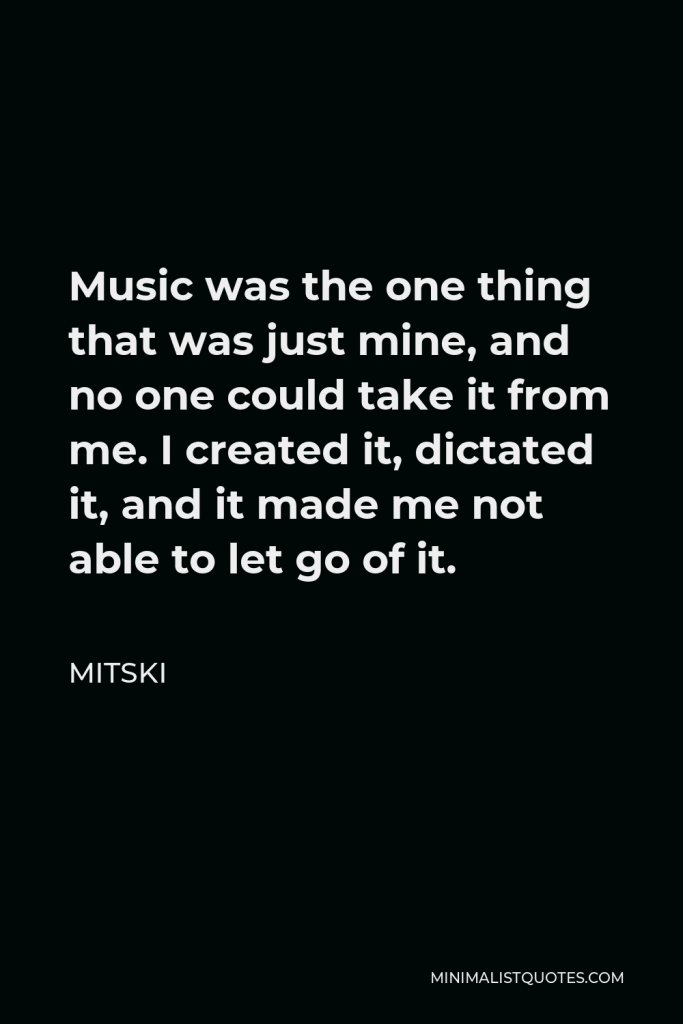

Music was the one thing that was just mine, and no one could take it from me. I created it, dictated it, and it made me not able to let go of it.
MITSKI -





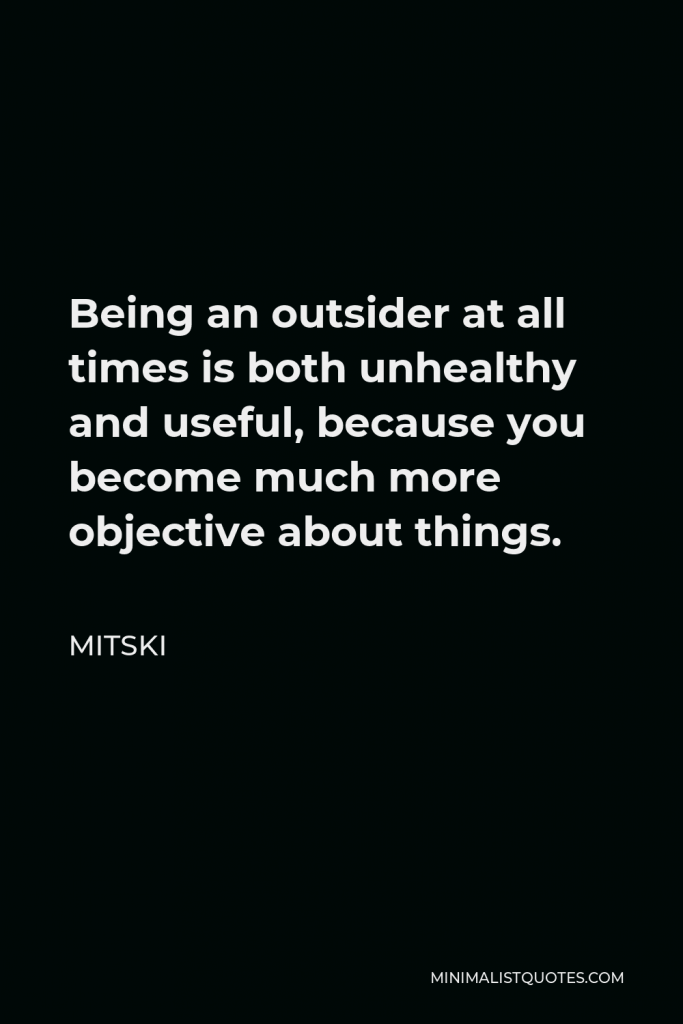

Being an outsider at all times is both unhealthy and useful, because you become much more objective about things.
MITSKI -





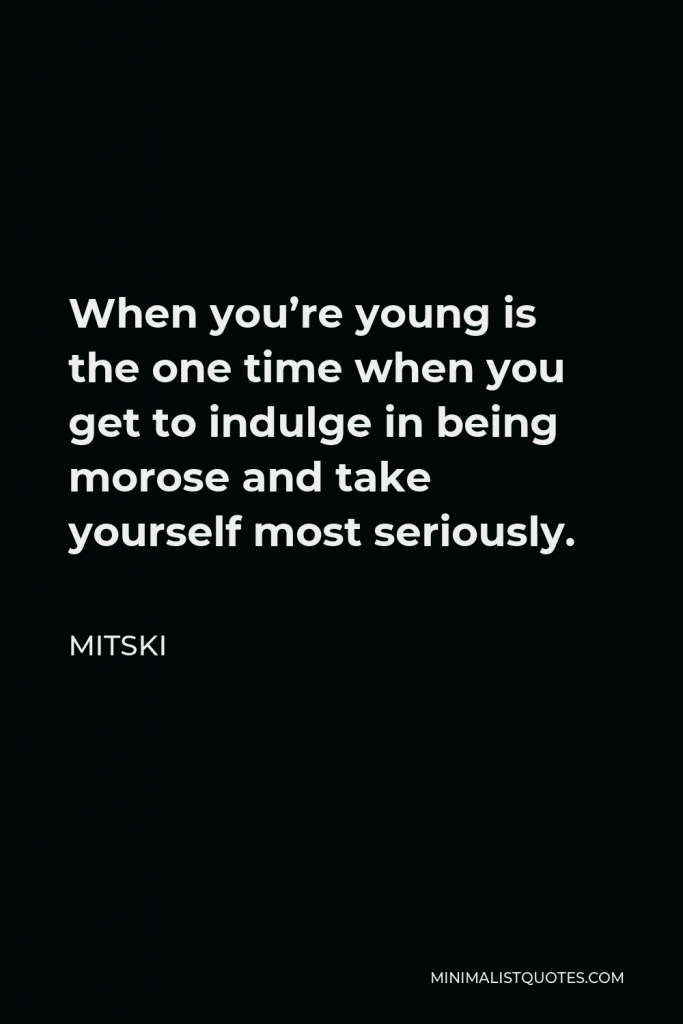

When you’re young is the one time when you get to indulge in being morose and take yourself most seriously.
MITSKI -





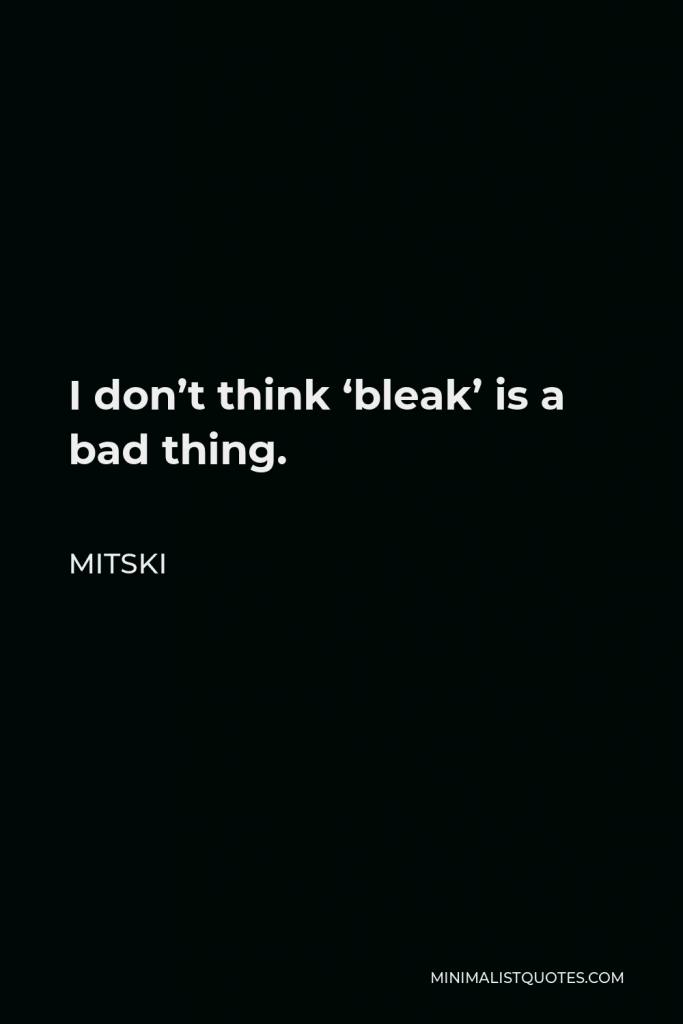

I don’t think ‘bleak’ is a bad thing.
MITSKI -





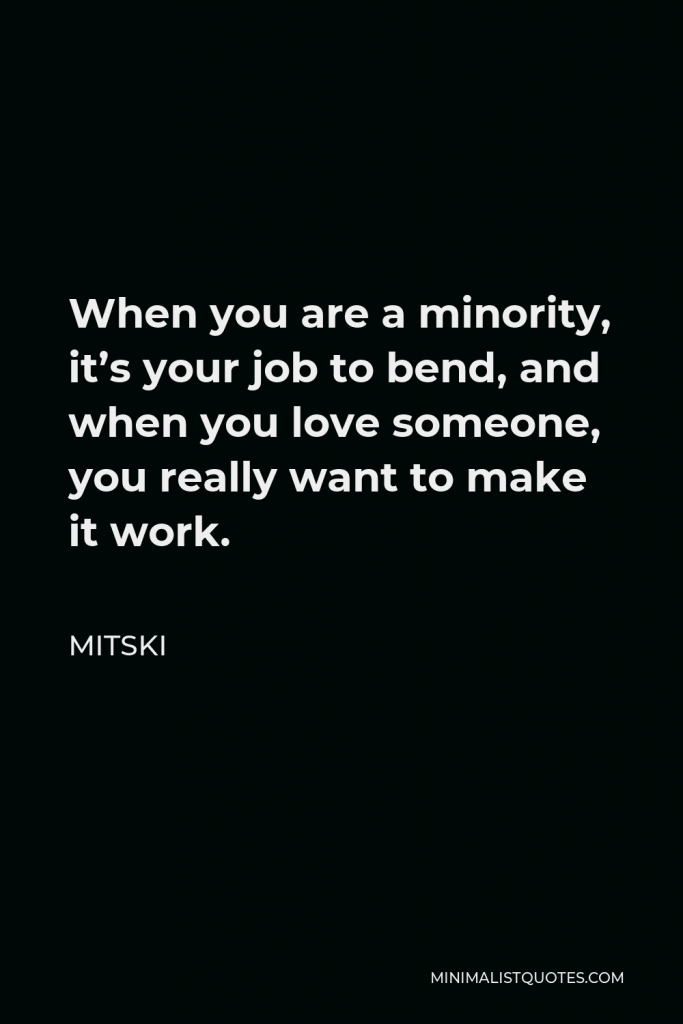

When you are a minority, it’s your job to bend, and when you love someone, you really want to make it work.
MITSKI -





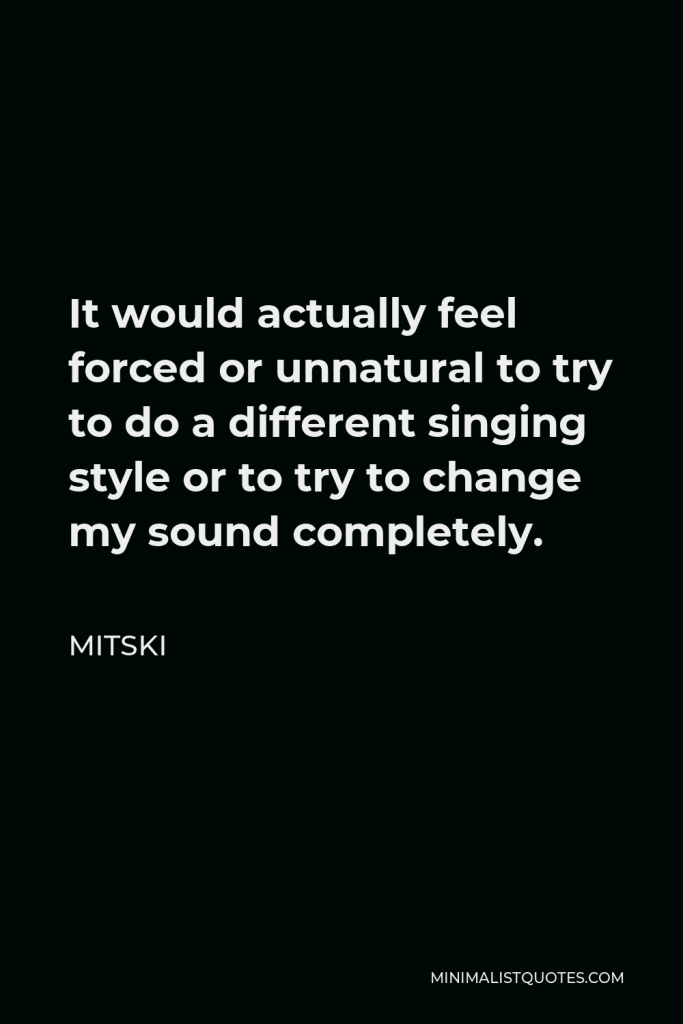

It would actually feel forced or unnatural to try to do a different singing style or to try to change my sound completely.
MITSKI -





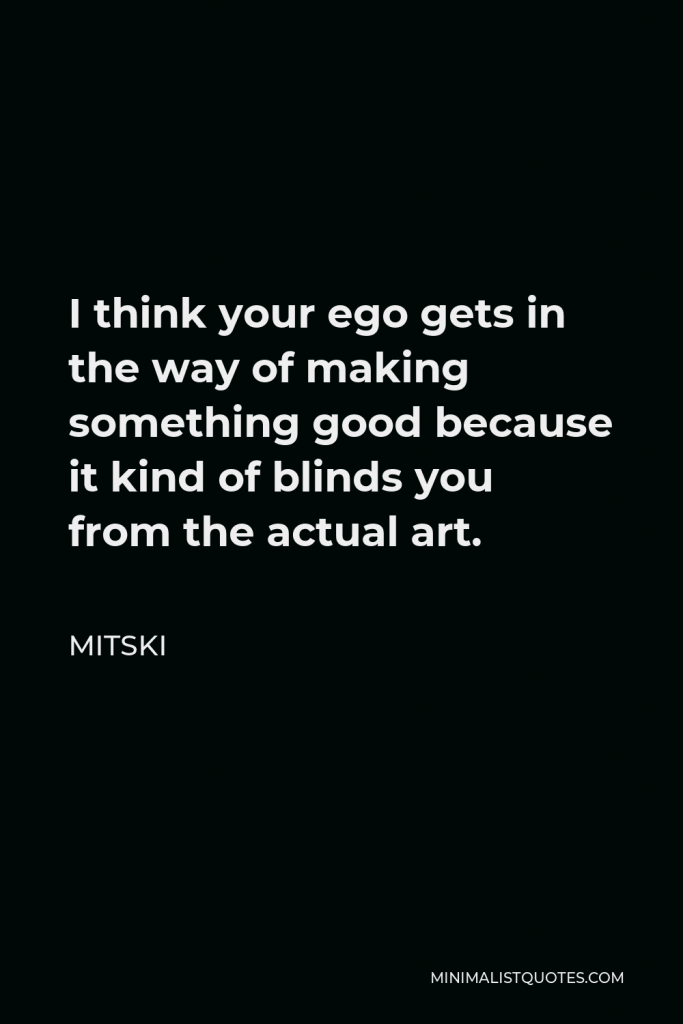

I think your ego gets in the way of making something good because it kind of blinds you from the actual art.
MITSKI -





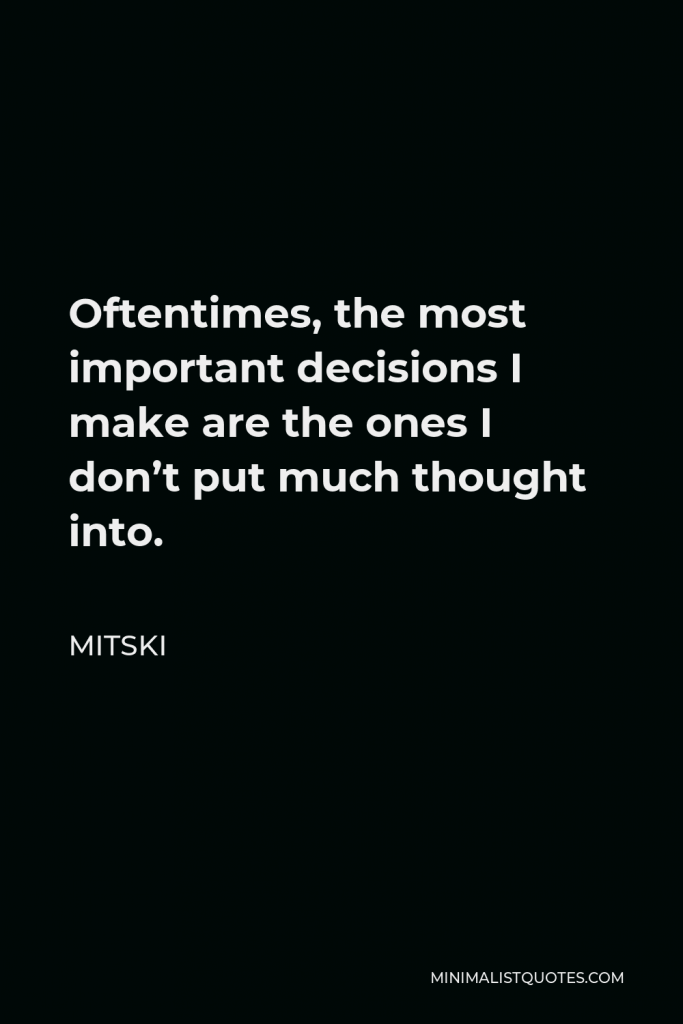

Oftentimes, the most important decisions I make are the ones I don’t put much thought into.
MITSKI
